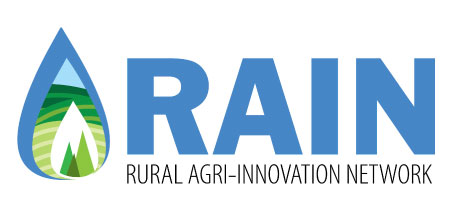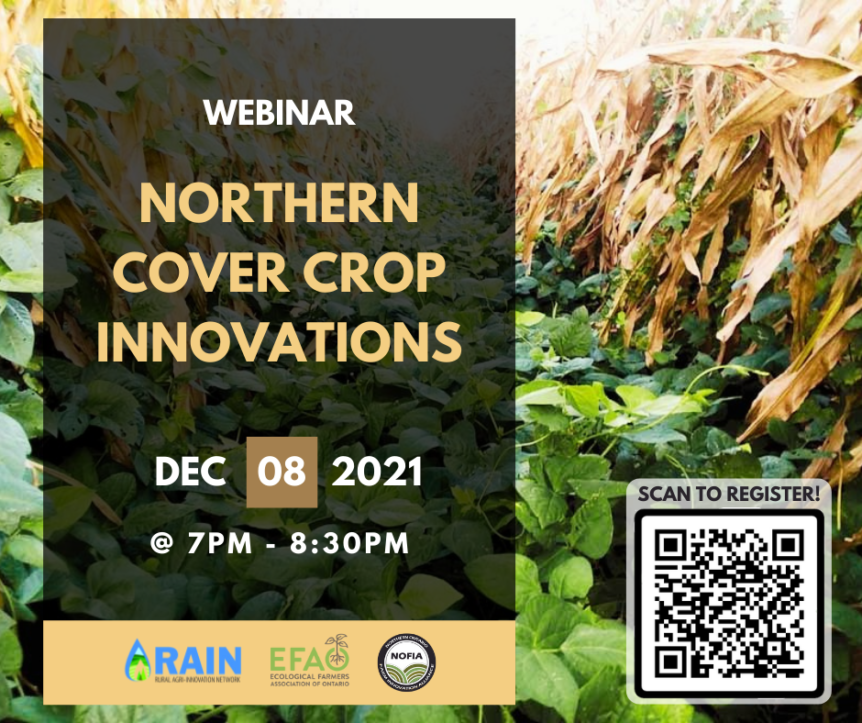Wednesday December 8th, from 7:00 PM – 8:30 PM
Register HERE
How are northeastern Ontario farmers using cover crops in their field crop rotations? What are the most successful cover crops for northern climates? What are the benefits and challenges of adding cover crops to field crop rotations? Find the answers to these questions and more at this comprehensive webinar for field crop producers, offered in partnership by the Rural Agri-Innovation Network (RAIN), Northern Ontario Farm Innovation Alliance (NOFIA) and EFAO.
Speakers:
Callum Morrison is a graduate student at the University of Manitoba specializing in cover cropping on the Canadian prairies through the 2020 Prairie Cover Crop Survey and in Ontario through the 2020 Ontario Cover Crop Feedback Project. Originally from Scotland, Callum is now living in the Red River Valley of Manitoba. Callum has thoroughly enjoyed his research journey, especially working alongside organizations, and most importantly, connecting with the farmers themselves.
Joshua Nasielski from the Department of Plant Agriculture at the University of Guelph is currently working on a research project on the use of a small grain cover crop in corn and soybean rotations. Josh will share the results of his research to date, with a focus on findings for New Liskeard, including key takeaways to date, and the cover crop mixes with which they have found the most success.
Terry Phillips is an agronomist at Co-op Regionale de Nipissing-Sudbury, and a farmer and seed retailer based in New Liskeard. Terry farms 420 acres in the Temiskaming District, near New Liskeard, Ontario and runs a rotation of canola, spring or winter wheat, RR soybeans, and either pedigreed oats or pedigreed barley, and processed pedigreed oats and barley are wholesaled through their company: Phillips Seeds Ltd. All crops are no-till except for soybeans and Terry has started growing cover crops (55% tillage radish and 45% crimson clover) after cereal harvest. He will share some challenges and successes he’s seen to date.
We are pleased to offer this webinar at no cost, thanks to funding from FedNor and NOHFC.



